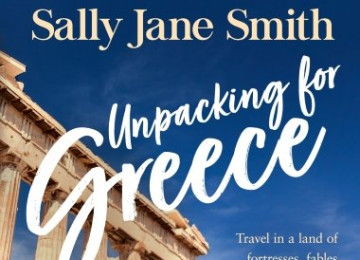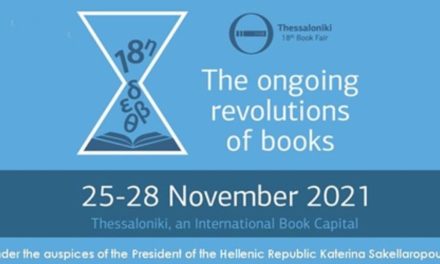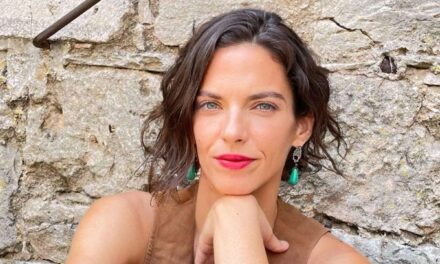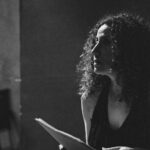Eirini Margariti was born in 1979. She studied theatre and is working as an actress, a director and a screenwriter. Her first book Flamingo (Melani, 2014) won the “Giannis Varveris” Award by the Hellenic Authors’ Society for Best Newcomer Poet. She has also published the poetry collection flou (Saixpirikon, 2019), which was nominated for the “Anagnostis” Award for Poetry (2020), and CloudChase (Melani, 2023).Her poemshave been translated into English, Spanish, Swedish and Serbian and have featured in a number of anthologies.
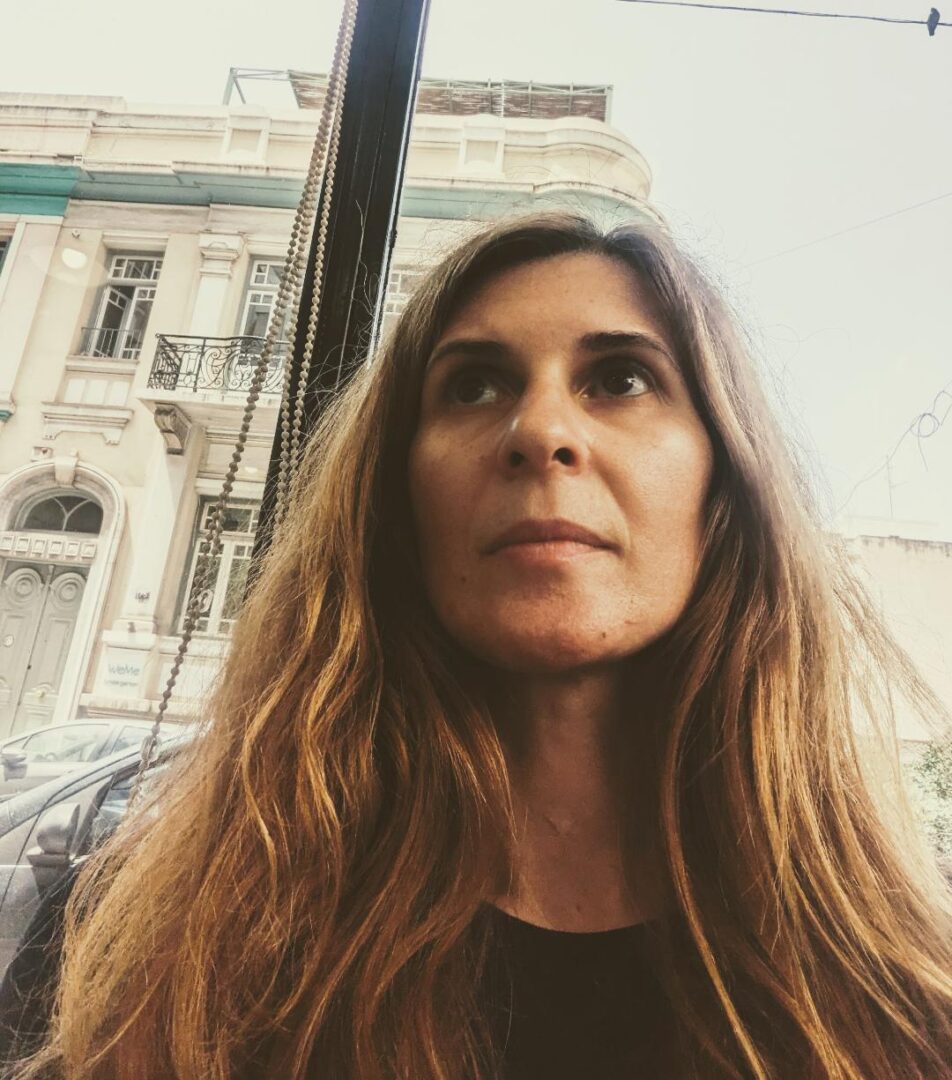
Your latest writing venture συννεφοκυνηγητό [CloudChase] was recently published by Melani. Tell us a few things about the book.
CloudChase is my third poetry collection, most of which was written after the birth of my son. It borrows its title from a phrase I came across in a Delillo short story, “I opened my eyes and saw clouds pushed by the wind -cloudchase- and a seagull balancing on a stream of air, its long wings straight and still”. This image for some reason clicked in my mind, since it somehow encapsulated everything I was experiencing at the time. Nursing exclusively for a year and a half, with the anxiety of a woman becoming a first-time mother and my sleep, a broken toy in my son’s hands (I hadn’t slept for over two hours straight), reading and writing was just that, a kind of cloudchase. A wind desperately trying to clear my sky.
Over time, of course, this idea of the cloudchase took on other dimensions as well: a cloud is something soft that shifts, changes forms, merges or breaks into smaller pieces and can contain something dreamy and threatening at the same time. This dual quality fascinated me and I felt it best represented both my experience (motherhood) and the poems in the collection. And while CloudChase may not be a book that deals exclusively with the experience of motherhood, or at least how we think about it, it is a book that has been significantly influenced by it. Therefore, it involves a shift of focus from the “I” into something that wants to be – and hopefully becomes – more of an “us”.
Motherhood, family ties and traumas, gender and everyday experiences in the city seem to be a focal point of reference in the book. Which are the main themes your poetry touches upon?
Certainly, the way one experiences everyday life in its synchronicity is of great concern to me. But I perceive the poetic ego as a filter and nothing more. A filter, in fact, which in my case has certain characteristics (woman, born in Greece, cis straight etc.). Yet, there is something else. For example, when I wrote the poem “Keep the balloon in the air”, which is a poem that refers to my father, I didn’t have the feeling that I was writing a poem about family ties, although logically, yes, that’s where someone would classify it; and that’s because in this poem my father is not exactly my father, but the ideal vehicle to talk about many other issues that concern me, such as old age or the important political events that the generation that raised us lived through, their attitude towards them and how this ultimately shaped us as well.
So, yes, on the one hand it’s a poem about my father, on the other hand who exactly is my father, if not the era that made him? At the same time, being skeptical about grand narratives, I’ve found that the only way to be convinced of something (that it’s important) is to see/feel how it’s captured in the small/personal. And that’s sort of what I try to do with my poetry.
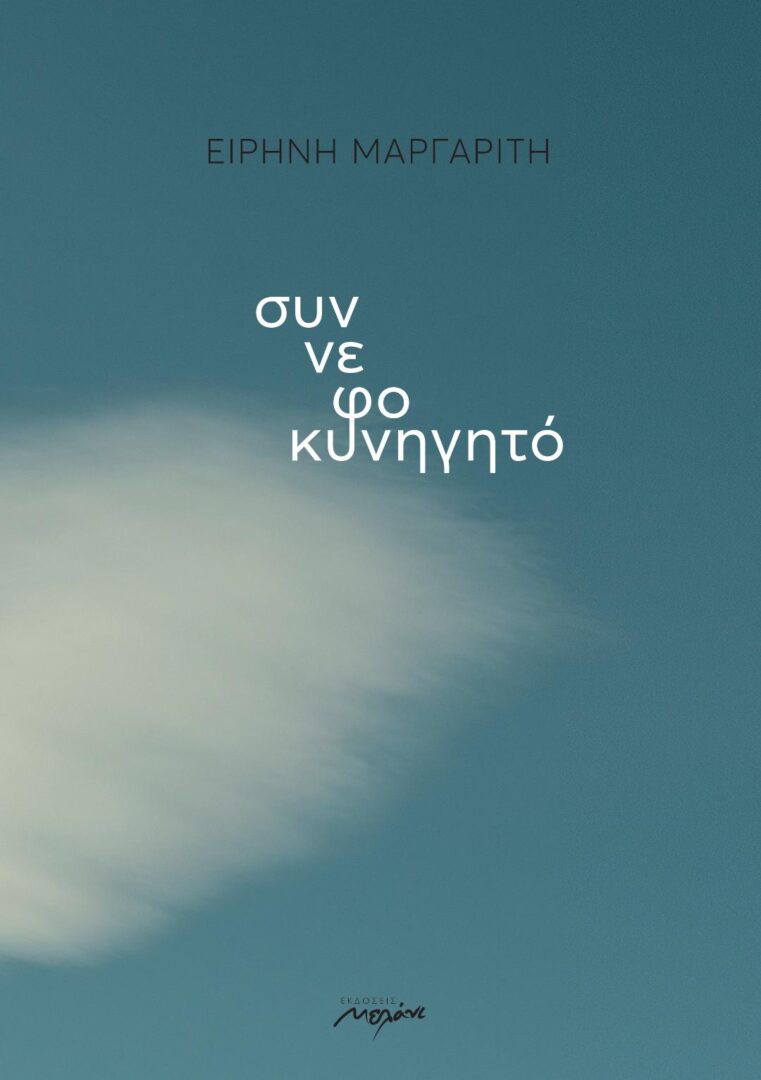
Free verse, prose poems, no punctuation, a certain theatricality characterize your poetic language. What purpose do these linguistic contrivances serve?
Most of the things I try I’ve come across somewhere or heard about somehow. For instance, my drama school teacher, Mania Papadimitriou, has always insisted that we should not follow the punctuation marks, but try other “speeds”. I call it speed, because, for instance, she told us not to stop for breath at full stops (where a thought or a meaning ended) but to try to break the rhythm, to find another, more our own, which in the end, in its truth, could also meet that of the writer. So, at some point, I wondered what this might look like on paper…
I came across the answer when I saw some poems by Katerina Zisaki (on FB) where, despite the full stops, she started the next sentence with lowercase characters. Katerina may have done it for other reasons, but I used it somehow as a stage direction. To say to the reader: don’t stand still too long, the speed of the internal event as experienced in the poem is thunderous. Also, in some absurd way I believe that the form a poem takes is a parallel event. That is, the content of the poem is one thing, its form is quite another. And these two combine to produce a third, which is the poem.
“Poetry is important because it invite us to be reflectively silent. Creating silence, through speech, it invites us to a deeper understanding of ourselves and the world”. Tell us more.
Let’s start with the fact that these are David Whyte’s words, and I used them as an answer to the question: “why is poetry important?” posed to me by a journalist from “Athens Voice” in a feature on World Poetry Day. Let’s continue with the fact that I disagree with this choice of mine. Not because David Whyte is wrong about anything, but because, by now, it doesn’t seem satisfactory to me as an answer. In some ways, in fact, it reminds me of some conservative responses that want to be “important” and therefore use the words of others. I would rather have said: “to tell you the truth, I have no idea”, or something else, even if silly, but my own silly.
What’s more, though still not disagreeing with this particular view, I’m not sure that this is the time to be reflectively silent. There are many burning issues that require us to take action or at least to take a clear position. A poetry like Pythia’s oracle, conveniently and thoughtfully ambiguous, is not exactly my concern. Perhaps this is ultimately my answer to the original question of why poetry is important. Poetry is important when it is not afraid to take a stand (because only then does it truly accommodate the poet’s voice).
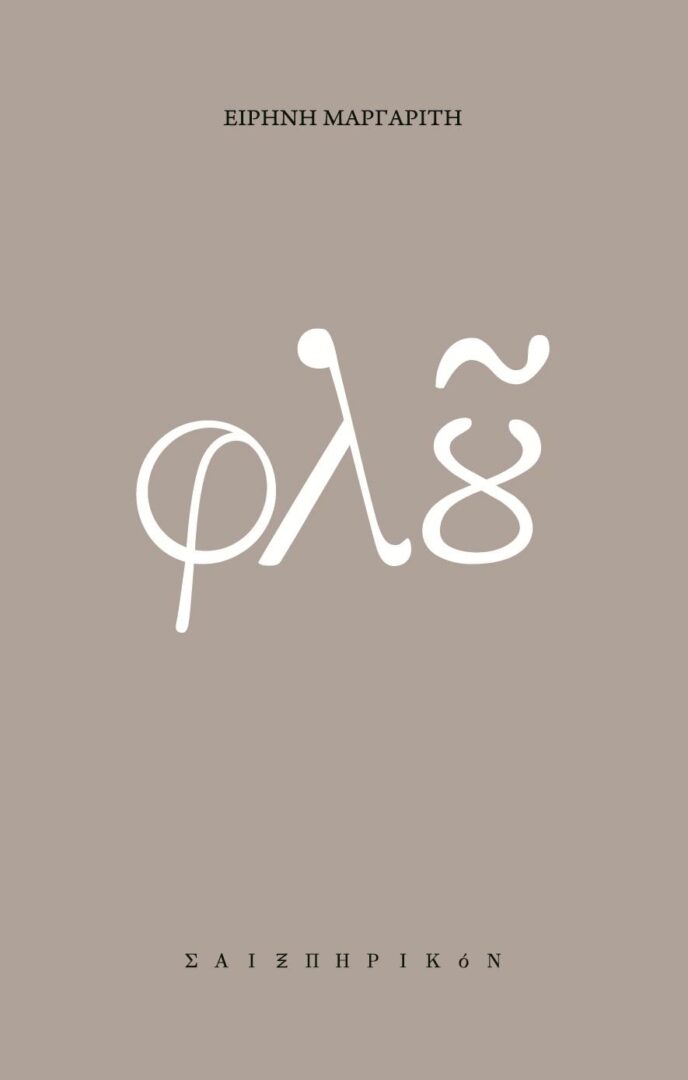
How does your literary work relate to the surrounding reality? And more generally, which is the relation of art to the world it inhabits?
I presume I engaged myself with literature because I have always experienced the following dichotomy: on the one hand, I find reality suffocating and want to escape from it, while on the other, I feel an intense longing to find a way to make space in it so as to exist. Like a coin that has two sides. It’s not as if I am the only one that experienced such a feeling, nor that it can only happen to writers/ artists, but it’s certainly us who have a little toο much “yearning” to give form to this dichotomy. Some writers choose to document reality, others comment on it, while there are those who attempt to break through its boundaries, and those brave few (the ones I admire most) that try to change it. If I had to put myself in one of these categories, I would say that I belong to the first one. To those who observe/record it.
My poems constitute a kind of testimony as to how I perceive and experience reality. How I collide or refuse to come to terms with it and how at the same time I struggle to make some space for me to fit in. To give a concrete example: sometimes I think I write poems “to get the conversation going”, like when I talk to the neighborhood pharmacist about childhood viruses, since she is a mother too. I’ll “strike up a conversation” so as to feel, even for a while, the much-needed sense of “belonging”.
You have been experimenting with various artistic forms: prose, poetry, theatre. Which do you consider to be the binding thread?
It probably has to do with my inability to express myself and talk about things in a different way. I get terribly anxious when I am called upon to express my views as Eirini, while I feel much more comfortable speaking as a body (an actor) or through the body of a poem. Of course, I express myself in this way too, but through filters that I use and which make me feel safe.
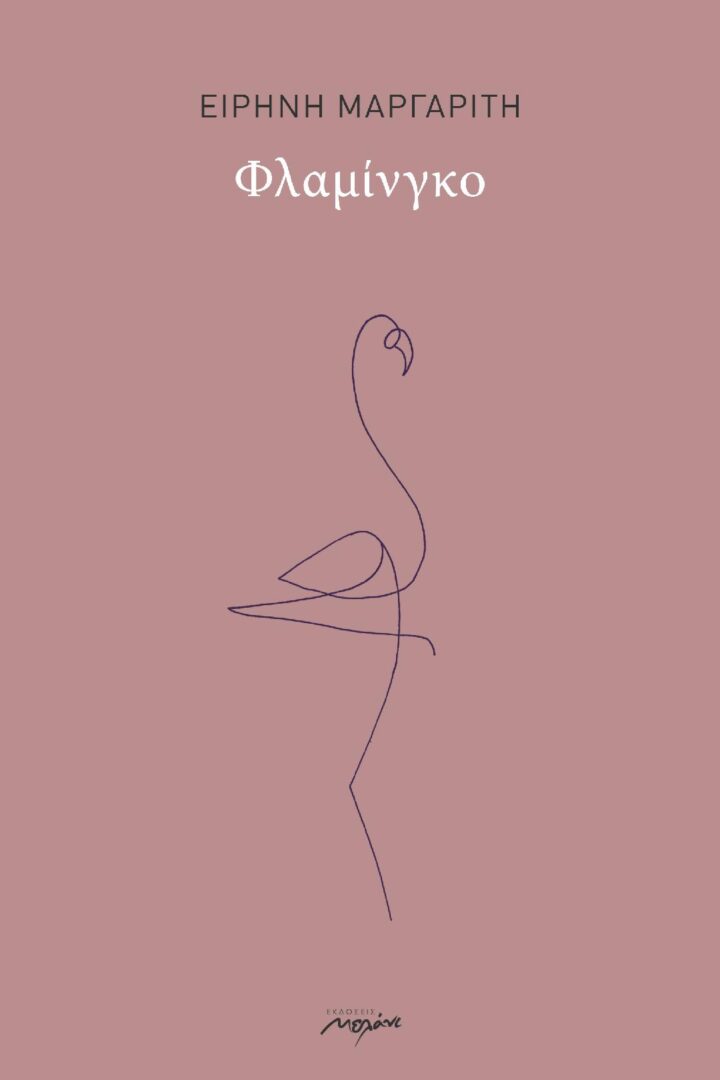
How does Greek poetry relate to world literature nowadays? How does the local/national interweave with the global?
Since we’ve all been talking about artificial intelligence lately and whether its use in literature can open up new perspectives, I decided to ask Chat GPT this question. And the truth is that the answer excited me. Unfortunately, not because it is true to reality, but for the brave new world it evangelizes when it says things like: “Greek poetry today plays an important role in the wider field of world literature, interacting and incorporating elements from various literary traditions”, when it talks about translations and moving beyond national borders but in fact refers only to translations of works by Cavafy, Seferis, etc.; or finally – to cut a long story short – when it fantasizes international collaborations and a great participation of Greek poets in festivals around the world.
Anyone can ask the question and read the whole answer on ChatGPT, seeing for themselves how far from reality its answer is or how complete is the absence of the state in implementing a national policy on literature. Because, surely, even if it cannot make Greek literature important abroad, the state could practically support it much more with translations, grants etc. And maybe then the AI answer would not just seem frivolous to us.
*Interview by Athina Rossoglou
TAGS: LITERATURE & BOOKS | READING GREECE

